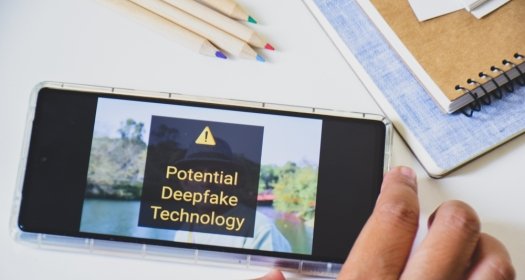The Deepfake Files: About
About the Wilson Center
Chartered by Congress, the Wilson Center provides nonpartisan counsel and insights on global affairs to policymakers through deep research, impartial analysis, and independent scholarship.
The Wilson Center brings fresh thinking and deep expertise to the most pressing policy challenges we face today. We convene scholars to create a global dialogue of ideas that Congress, the administration, and the international policy community can act on. In 2019, the Wilson Center was named the #1 regional studies think tank in the world.
Method
For this game, we conducted independent research on deepfakes and solutions to mitigating deepfakes. The backbone of the research was a combination of both an analysis of peer-reviewed articles, white papers, news coverage of deepfakes, and semi-structured interviews with experts in the field. In the analysis of existing literature, we tracked not only what mitigation techniques were discussed popularly but also what concerns may have arisen out of those techniques.
For the interviews, we conducted semi-structured interviews with seventeen different experts in the field. Experts were identified from both research of those who were leading the conversation in the field as well as a snowball sample (e.g. recommended from other interviewees). Experts ranged from researchers at academic institutions, nonprofit leaders, industry, and government analysts. All interviews were anonymous.
Everyone was asked the same open-ended questions with follow-ups. For example, we asked "what do you think are the most effective solutions?" or "what are core misconceptions around deepfake mitigation techniques?" and following up as threads of discussion presented themselves based on the interest and expertise of the interviewee.
Game Content
There were several consistent themes that presented themselves across interviews as points of concern, and points of interest, that we do not present in the game. For some, these are due to the nature of the content and the nature of games as playful experiences. For others, it was due to the leanness of the medium; namely, we did not feel we had enough room to present the information with the depth it required and opted instead to present those pieces of information in policy briefs. Deepfakes are a serious issue, but there were some aspects of deepfake mitigation that did not fit the medium of this game.
For example, across interviews, concerns were flagged around revenge porn and child sexual abuse material (CSAM) as necessary and pressing reasons for attention to be made to deepfakes. CSAM in particular came up time and again as a necessary lens for mitigation techniques such as data transparency and narrowing training data, as well as a legislation concern. Another critical case example, we did not feel it appropriate to build into a game and potentially risk presenting the material as something that was humorous or, similarly, risk not providing it the nuance and space needed to fully understand the risks and harms involved. In this case, we present this topic the article Combatting AI-Generated CSAM.
Likewise, due to the nonpartisan standing of the Wilson Center, we do not approach any examples of how deepfakes may or may not have been used in any election. Yet unlike CSAM and revenge porn, it is important to note that this was not a significant example across interviews. Instead, concerns about the overall nefarious uses of the technology used for deepfakes were a more consistent theme.
On the other hand, one theme that did come up across multiple interviews were positive uses of deepfakes. One example (of many) would be the use of deepfakes to represent people with disabilities who might use it to counter stigma or other issues with online representation.. This is a relatively underexplored area, but should inform mitigation techniques. Thus we have decided to explore this topic in the article Positive Use Cases of “Deepfakes.”


